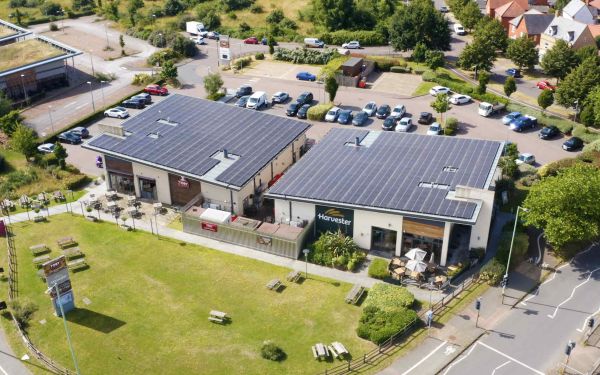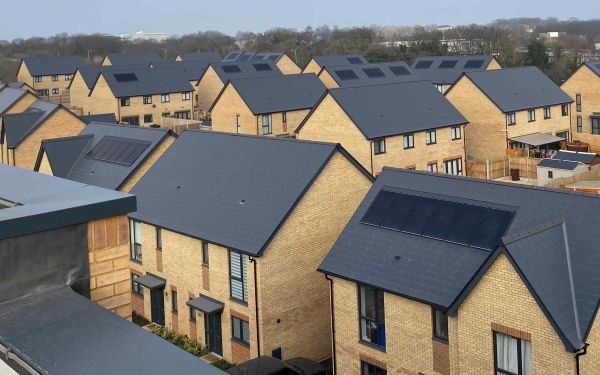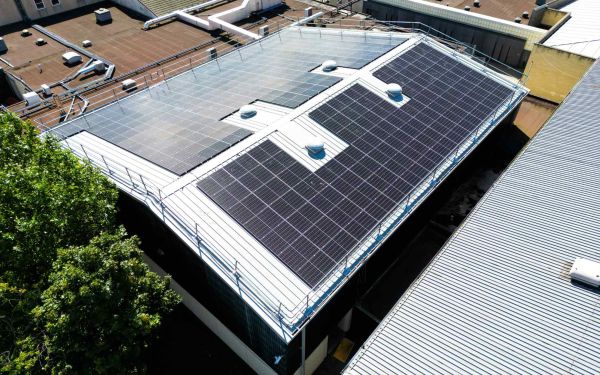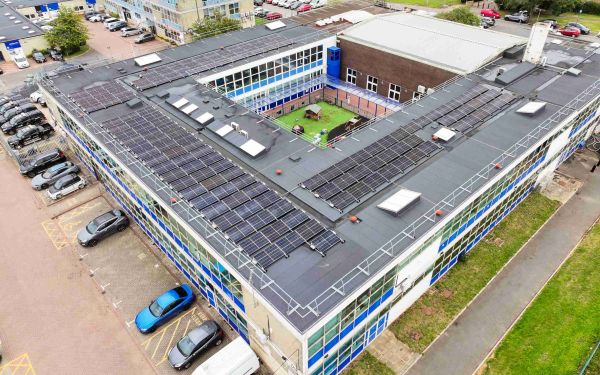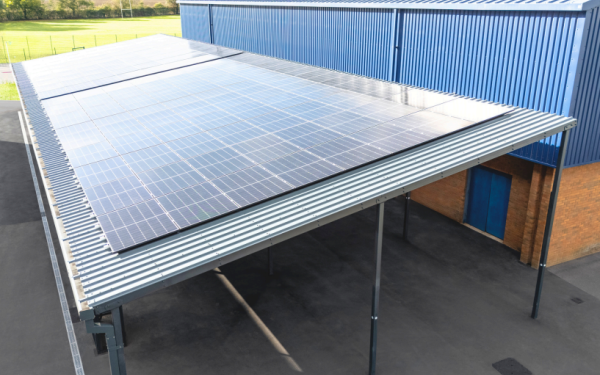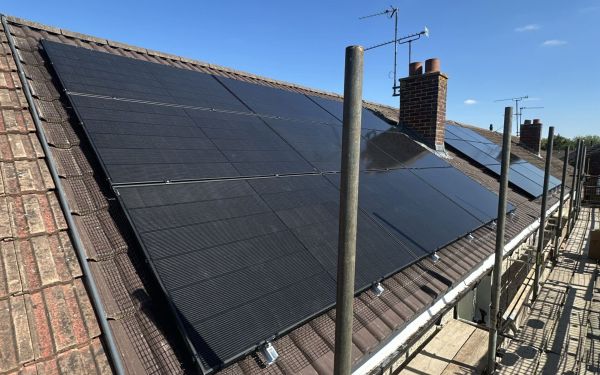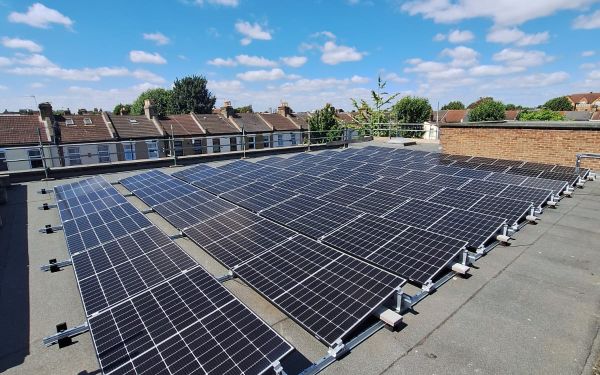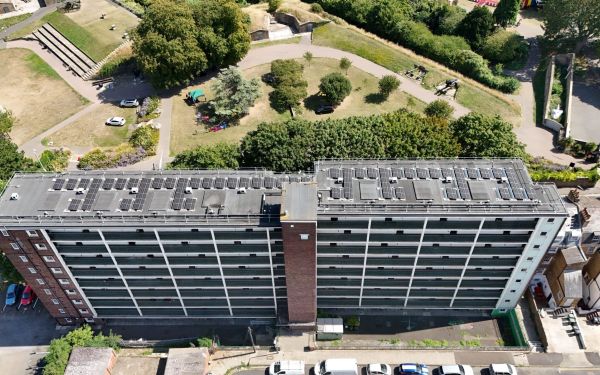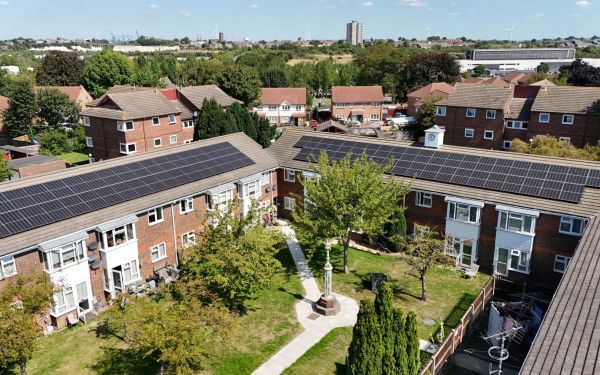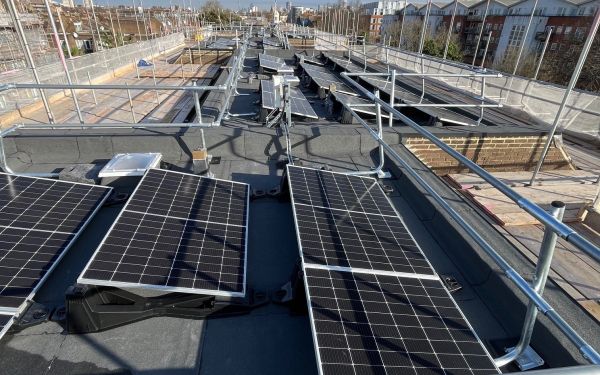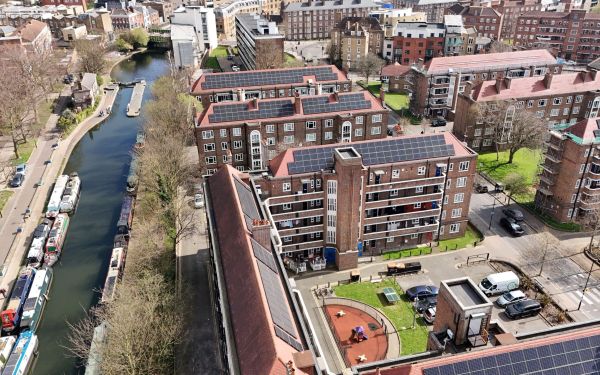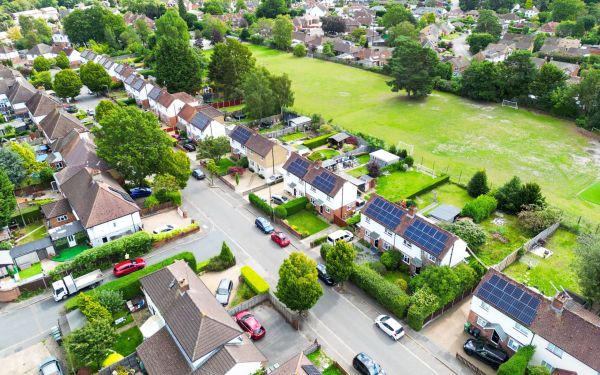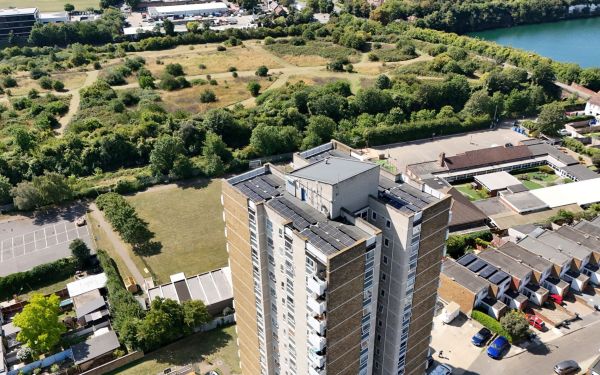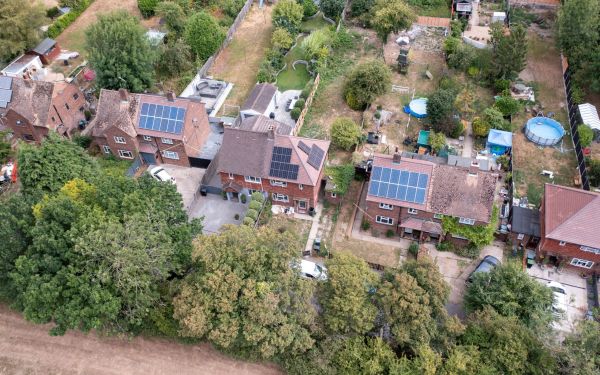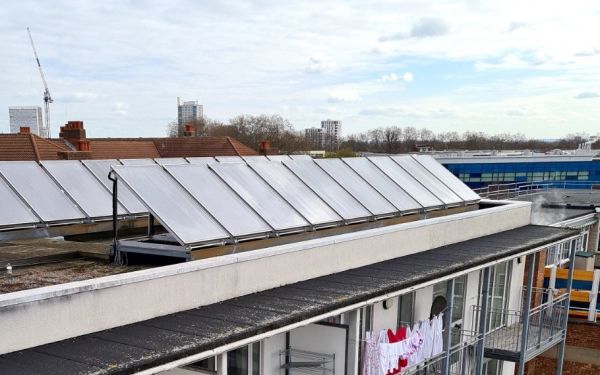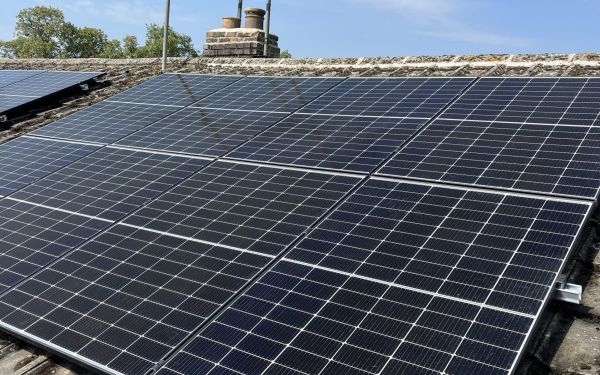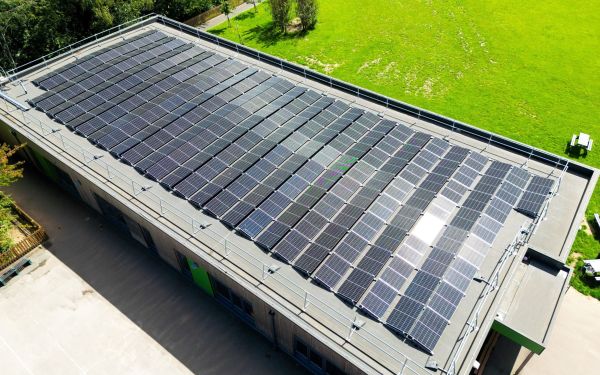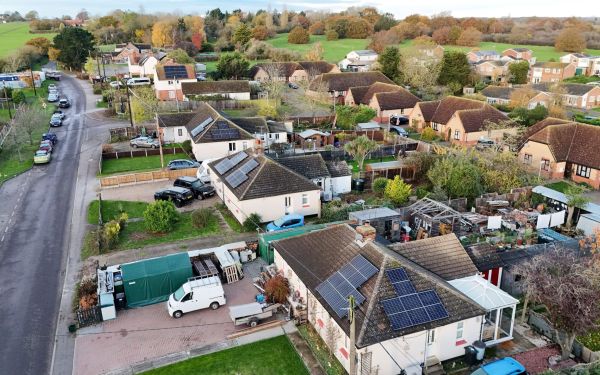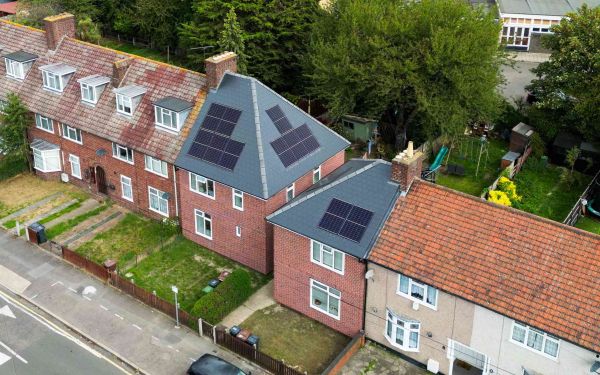
Leading Real Estate Business’s EV Transition.
Driving sustainability with EV charging
In an era of accelerating climate action, sustainability is becoming a hot topic for companies in all industries. Leading organisations are being asked not only to measure their carbon emissions but to show meaningful reductions across operations and travel.
Our client, one of the UK’s leading real estate services providers, recognised this shift early on. With a nationwide portfolio of offices and properties, the company saw the potential to make a real impact, particularly in the transition to electric vehicles (EVs). But like many large commercial businesses, our client faced a familiar problem: no onsite EV chargers, no way to power a growing electric vehicle fleet, and limited ability to encourage employees and visitors to make the switch.
The challenge:
In 2021, our client’s head office and key regional branches had no dedicated electric vehicle charging infrastructure. Employees who had already moved to EVs had to rely on public chargers, which were often unavailable, far from site, or subject to high usage fees. For those considering the switch, the lack of workplace charging put many off.
From a fleet perspective, the business also saw a gap. Without commercial EV charging points onsite, transitioning to low-emission vehicles was not practical. Operational vehicles, regional reps, and sustainability teams couldn’t rely on public infrastructure to deliver consistently, especially in more remote or suburban office locations.
Adding to the clients’ urgency was environmental legislation. The UK Government had already announced a ban on the sale of new petrol and diesel vehicles (initially 2030, now 2035), and pressure was mounting for large organisations to comply with net zero targets. Our client needed to act, both for ESG reporting, and to meet real operational demands.
Legislation:
At the same time, the regulatory environment was changing. In June 2022, the UK government passed the Building Regulations Part S, introducing new requirements for EV infrastructure in non-residential buildings. This meant:
- All new commercial buildings with more than 10 parking spaces must have at least one EV charge point.
- Existing commercial buildings undergoing major renovation with over 10 parking spaces must also install EV charging infrastructure (minimum of one charge point and cable routes for 20% of spaces).
- Every additional five spaces requires additional charging capability.
More legislation is likely to follow. Local authorities are already incorporating EV readiness into planning approvals, and investors are starting to look closely at the environmental credentials of corporate property portfolios.
In short: EV charging was no longer optional.
The solution:
Our client partnered with Carbon3 to install a network of EV chargers across key UK offices. With experience in delivering commercial EV charging solutions, Carbon3 designed and installed systems tailored to the high-usage environments that make up the client’s offices.
Over the course of the project, Carbon3:
- Installed 10 smart EV charging points across the client’s commercial sites.
- Delivered a scalable, future-proof solution capable of expanding with demand.
- Integrated real-time monitoring via our cloud-based EV charge management platform.
- Helped the client meet present regulatory requirements and prepare for future mandates.
The systems were built with commercial reliability in mind, with smart load balancing, secure access control, and flexible tariff options all included, ensuring maximum uptime and minimal disruption to site operations.
The results:
In the last year, the charging network has seen over 1,590 sessions, delivering more than 22.27 MWh of clean energy to EVs. This equates to tens of thousands of miles powered by renewable electricity instead of fossil fuels.
In addition to supporting its corporate electric vehicle fleet, our client now offers reliable charging to employees and clients, reinforcing its brand as a forward-thinking, environmentally conscious employer.
From a commercial perspective, the payback period on EV charging infrastructure is typically 2–4 years, depending on usage. For businesses like our clients’ with high site traffic, the return is even faster. And with energy prices and fuel taxes fluctuating, having control over energy use on-site is a clear financial advantage.
EV charging cost and benefits for commercial properties:
When it comes to EV charging costs, many businesses are surprised to learn how manageable the investment can be, particularly when set against long-term gains in fleet savings, employee satisfaction, and compliance.
Carbon3 worked with the client to ensure:
- Minimal civil works and maximum use of existing electrical capacity.
- Government grants and incentives were factored in, where applicable.
- The system could grow in line with demand without starting from scratch.
Key commercial benefits included:
- Enhanced sustainability reporting with real-time data.
- Improved employee engagement and support for EV adoption.
- Future-proofing assets for resale, lease, or regulatory purposes.
- Operational cost savings from EV fleet transition.
Why this matters:
This project offers a clear blueprint for other businesses aiming to improve their sustainability profile. Whether you’re advising a client on ESG performance, managing a large property portfolio, or looking to support a company-wide fleet transition, commercial EV charging is one of the highest-impact, fastest-to-deploy changes available.
EV chargers also create a visible, tangible sign of commitment to decarbonisation, which is something stakeholders, investors, and regulators increasingly expect.
Looking ahead:
Our client is now well-positioned to expand its EV infrastructure further, supported by Carbon3’s scalable cloud EV system and strategic advice. As more fleet vehicles become electric, and staff make the switch in greater numbers, the need for reliable onsite charging will only grow.
And for sustainability managers watching the regulatory landscape evolve, there’s a clear lesson: investing in EV charging infrastructure today reduces compliance risk, boosts ESG performance, and saves money tomorrow.
Ready to accelerate your business toward net zero?
Carbon3 specialises in delivering commercial EV charging solutions that are scalable, smart, and designed for the real world.
We help businesses:
- Cut EV charging costs with efficient design and installation.
- Manage energy use and demand effectively.
- Support their electric vehicle fleet transition.
- Meet legislative requirements and future-proof their sites.
Get in touch today to find out how we can support your decarbonisation journey with expert EV charging installations.
